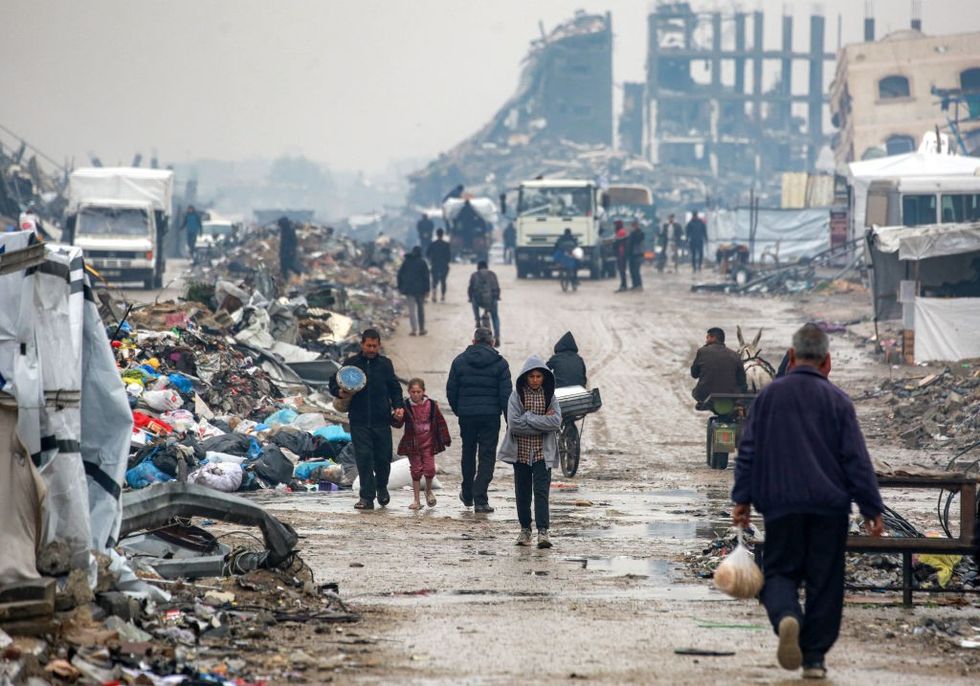Palestinian migrants have been granted the right to live in Britain after applying through a scheme meant for Ukrainian refugees.
A family of six attempting to flee the Gaza strip have been allowed to join their brother in the UK after an immigration judge ruled that the Home Office’s rejection of their application breached their human rights.
The refugees made their initial application through the Ukraine Family Scheme and their case was accepted, despite warnings by lawyers for the Home Office that it could unleash “the admission of all those in conflict zones with family in the UK”.
The family, made up of a mother, father and four children aged seven to 18, were living in a Gazan refugee camp after their home was destroyed by an air strike.

The family were living in a Gazan refugee camp after their home was destroyed by an air strike
GETTY
In January 2024, they applied using the Ukraine scheme’s form on the basis that it best fitted their situation and that their circumstances were “compelling and compassionate” enough for their application to be granted outside its rules.
The scheme was set up in March 2022 to allow Ukrainian nationals to come to the UK if they had a British relative or family settled in the UK.
It closed last February, after having issued around 72,000 visas.
The family’s claim was initially denied by a low-tier immigration tribunal based on the fact that it was outside the Ukraine programme’s rules, and that Parliament was to decide which countries should benefit from resettlement schemes.
However, upper tribunal judge Hugo Norton-Taylor overturned this decision, granting the family of six asylum in the UK on the basis of their Article 8 right to a family life under the European Convention on Human Rights (ECHR).
He said the family’s “extreme and life threatening” situation outweighed the “public interest” of the rules on entry to the UK – set in place to control the number of migrants coming to Britain.
Shadow home secretary Chris Philp said that this case showed that changes to human rights laws were needed in order for Parliament, not judges, to control who could settle in Britain.
He claimed this set an alarming precedent that would give anyone in a conflict zone with family in Britain a basis to come to the country.
“There are two million people in Gaza alone and tens of millions around the world in conflict zones, many of whom will have relations living in the UK. We obviously cannot accommodate all of them,” he argued.
He added: “The UK has generously helped people in Ukraine, Syria, Afghanistan and Hong Kong with specific humanitarian schemes. We cannot have judges simply making up new schemes based on novel and expansive interpretations of human rights law.”